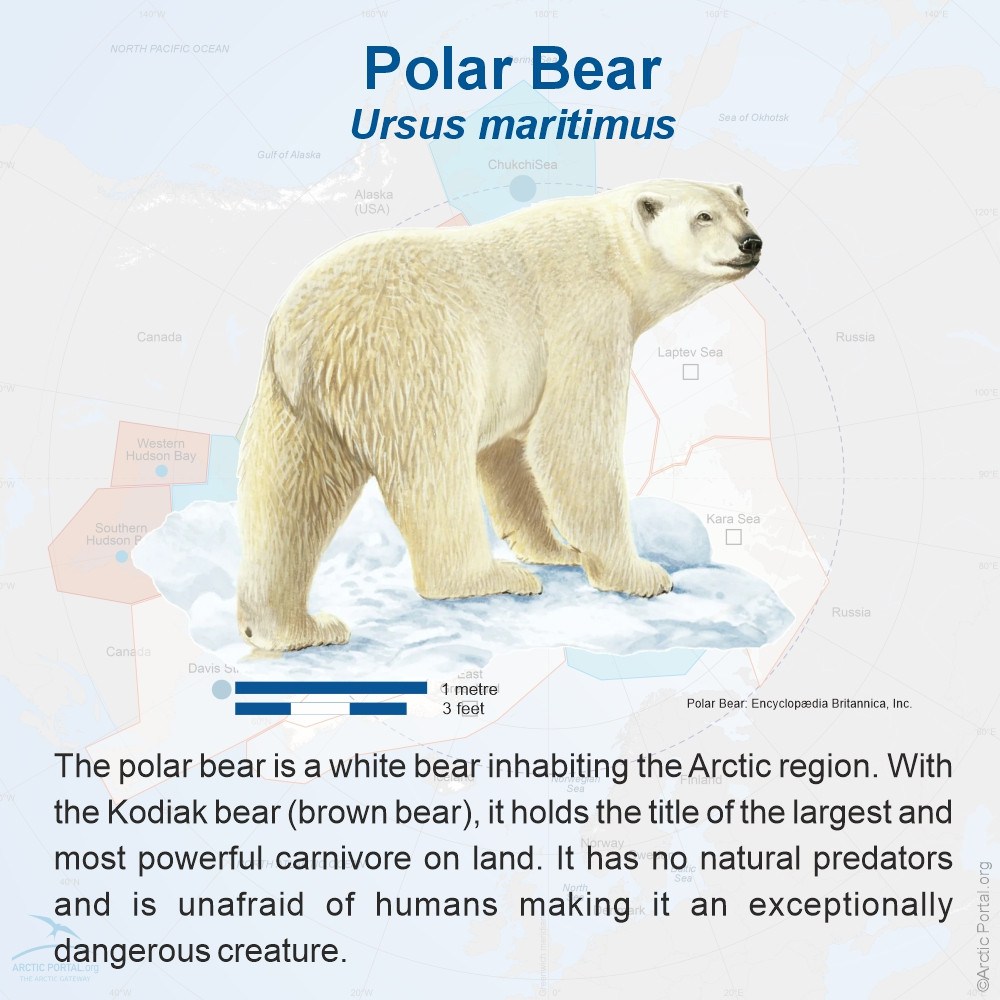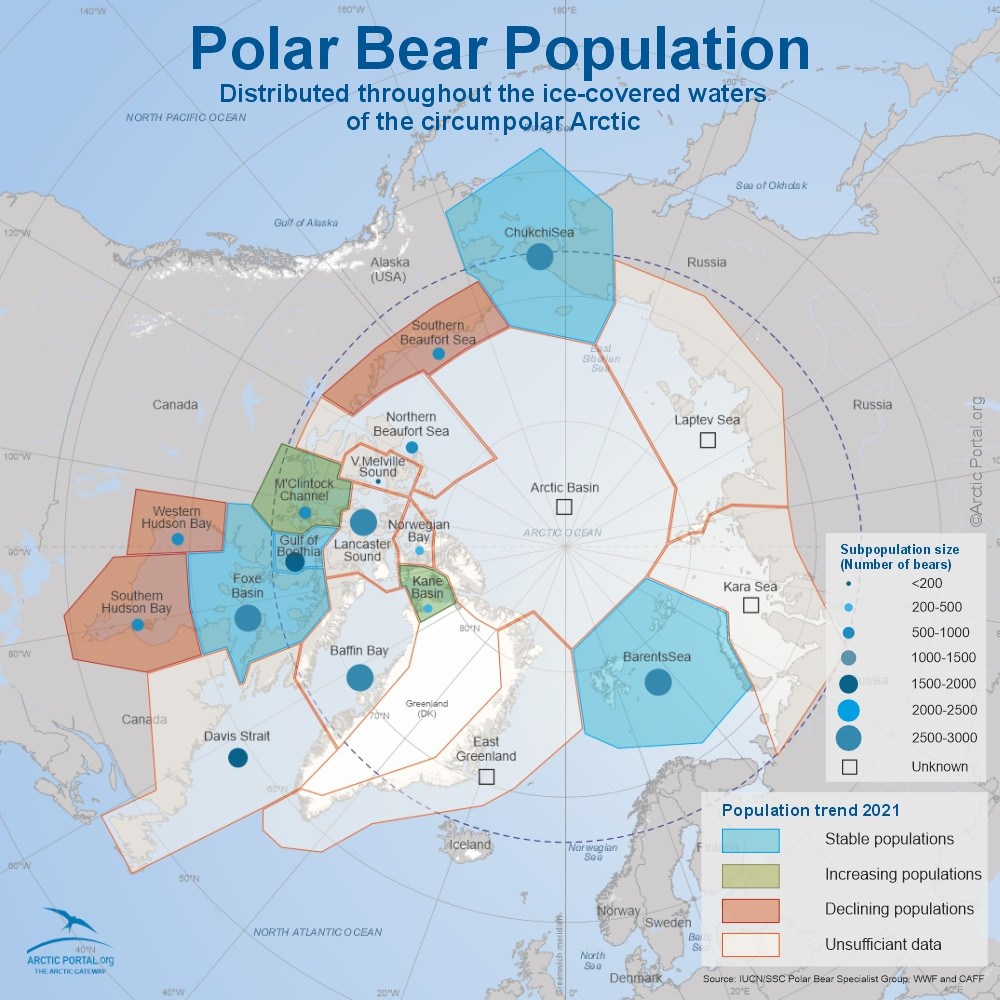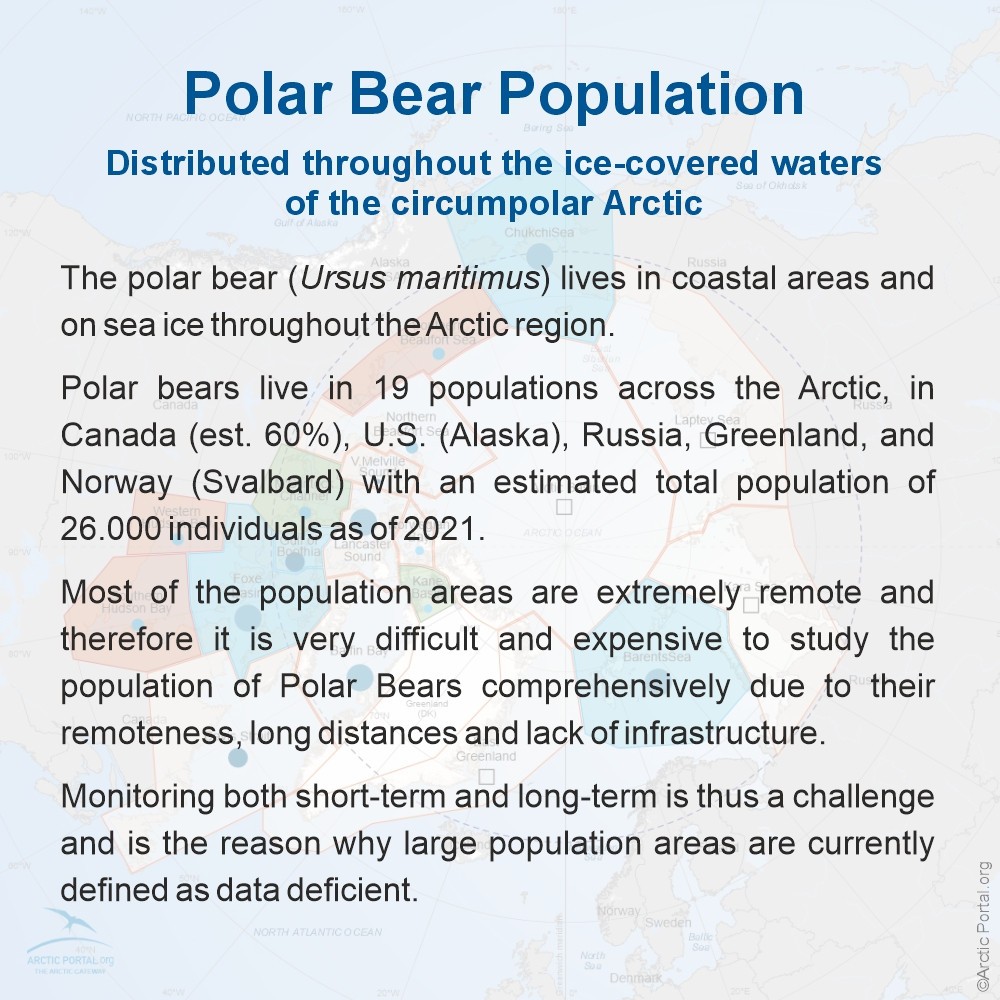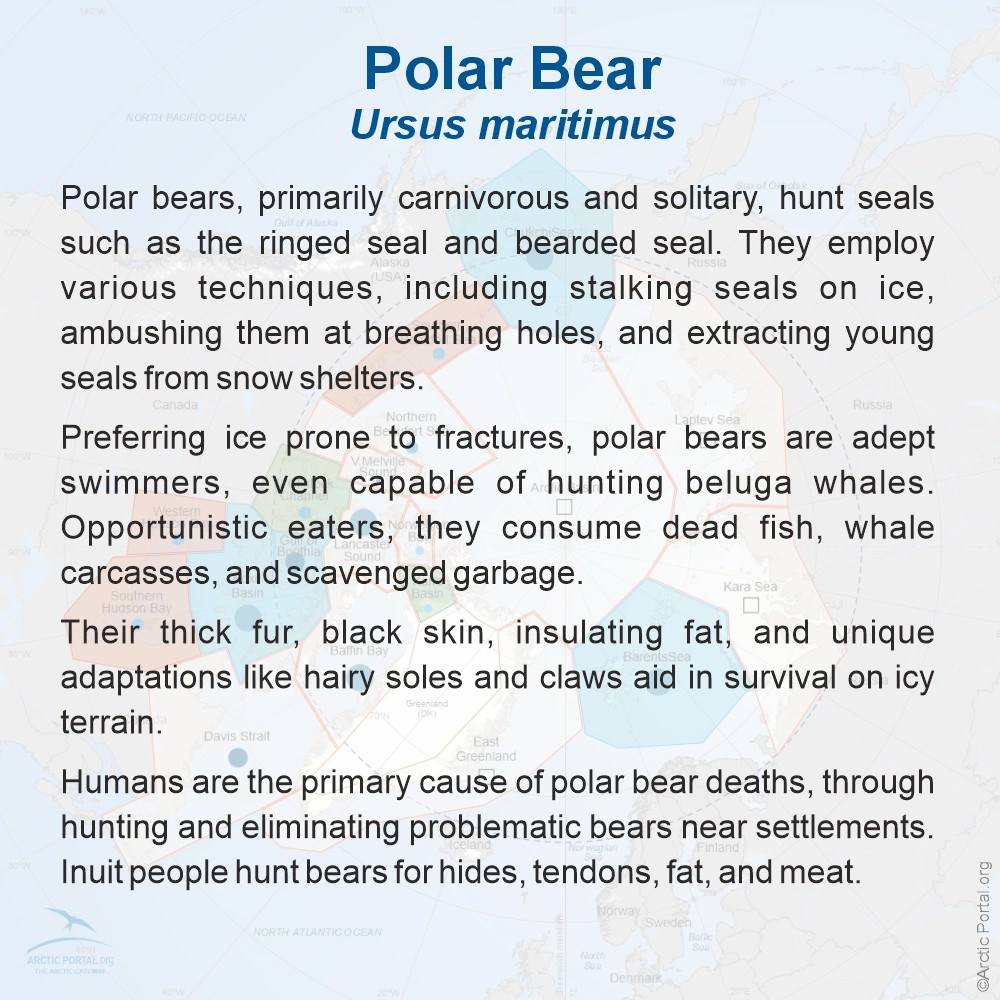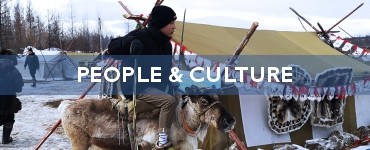The polar bear is a white bear inhabiting the Arctic region. With the Kodiak bear (brown bear), it holds the title of the largest and most powerful carnivore on land. It has no natural predators and is unafraid of humans making it an exceptionally dangerous creature.
Population and Distribution
The polar bear (Ursus maritimus) lives in coastal areas and on sea ice throughout the Arctic region.
Polar bears live in 19 populations across the Arctic, in Canada (est. 60%), U.S. (Alaska), Russia, Greenland, and Norway (Svalbard) with an estimated total population of 26.000 individuals as of 2021.
Most of the population areas are extremely remote and therefore it is very difficult and expensive to study the population of Polar Bears comprehensively due to their remoteness, long distances and lack of infrastructure.
Monitoring both short-term and long-term is thus a challenge and is the reason why large population areas are currently defined as data deficient.
General Information
Polar bears, primarily carnivorous and solitary, hunt seals such as the ringed seal and bearded seal. They employ various techniques, including stalking seals on ice, ambushing them at breathing holes, and extracting young seals from snow shelters.
Preferring ice prone to fractures, polar bears are adept swimmers, even capable of hunting beluga whales. Opportunistic eaters, they consume dead fish, whale carcasses, and scavenged garbage.
Their thick fur, black skin, insulating fat, and unique adaptations like hairy soles and claws aid in survival on icy terrain.
Humans are the primary cause of polar bear deaths, through hunting and eliminating problematic bears near settlements. Inuit people hunt bears for hides, tendons, fat and meat.
View also our map of the Polar Bear distribution and movement.
Visit our Map Gallery. Arctic Portal specializes in creating customized graphical maps that cover a range of significant Arctic topics with global recognition. We are continuously working on new maps and adding them to our Gallery.

